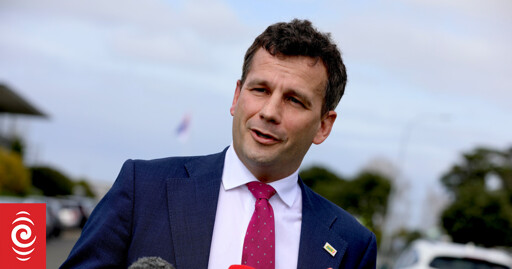The coalition is tweaking university regulations to curb what it says is an increasingly “risk-averse approach” to free speech.
The proposed changes will set clear expectations on how universities should approach freedom of speech issues.
Each university will then have to adopt a “freedom of speech statement” consistent with the central government’s expectations. The changes will also prohibit tertiary institutions from adopting positions on issues that do not relate to their core functions.
"Despite being required by the Education Act and the Bill of Rights Act to uphold academic freedom and freedom of expression, there is a growing trend of universities deplatforming speakers and cancelling events where they might be perceived as controversial or offensive.



It’s a strange one, I’m not entirely sure what their angle is. I do like the idea of orgasations like a university not taking a position on issues outside their area of expertise.
We recently had Tory Whanau tell central government to butt out of their business, while the council passed a resolution opposing the treaty principles Bill, for example.
It’s a waste of time, and such actions are seldom taken seriously anyway.
I think the problem is that some views do not deserve to have a platform. In theory, having a reasoned discussion about climate change is a good thing and should be welcomed at a university. In practice, someone coming to a university to talk about how climate change is not real is not going to have a reasoned discussion. Saying the university should not take sides is good in theory, but in practice allowing equal time for climate change deniers as for climate change supporters in the name of free speech does not actually support free speech (given the supporters are 97%).
That’s the problematic aspect of both sides approaches which give equal weight & import to at least two sides of an argument no matter what. And its especially bad when its editorial decisions that determine that equal weighting.
Two examples that come to mind is how for such a long time climate change denial was given equal footing (and is still given loads of airtime) despite a mountain of evidence that most of their arguments were tosh.
But lately Modern Monetary Theory which is absolutely a heterodox theory gets barely any mention even though it is one of the strongest counters to the mainstream economic approach which is almost all we hear despite strong arguments that it doesn’t consistently describe reality.
Its not that easy to narrow down what the scope of a University’s expertise would be though - take Victoria University of Wellington. Let’s look at say, the Arts department because they have one and I know some about it.
Would you say that VUW can thus allow expression on any topic of study that Arts schools typically study because the methodology across any of the specific topics is broadly lumped together?
Or, is it no, they can only talk about History, if within the Arts school they have a History Department? Well in that case, should they be expressing opinions on all of History, or only on those areas of History that they actually study?
OK well within that History department they are teaching courses on Pacific History, US History, some periods of European History so they can only opine on that.
Or should they only be allowed to talk on the specific periods / topics of US History that they are running courses on? Or should they only be allowed to talk about particular methods of Historical study when called upon so Dolores Janiewski (who was an awesome lecturer 20 odd years ago when I was there) is only allowed to talk about I dunno 20th Century US Feminism?
Realistically the people who could determine whether or not someone has enough expertise to be considered an expert opinion are the Universities.
Re the WCC asking the Government to butt out, that isn’t a matter of expertise but more one of jurisdiction, democratic rights responsibilities & freedom than a matter of free speech.